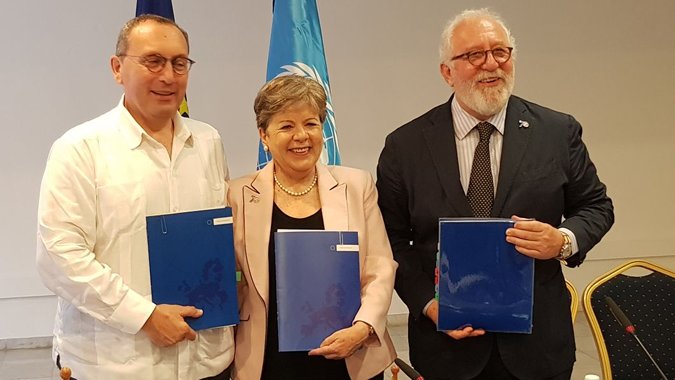The European Union launches the Regional Facility for Development in Transition
The tool was presented today in Buenos Aires, Argentina, by Stefano Manservisi, General Director of International Cooperation and Development of the European Commission, Mario Pezzini, Director of the Development Center of the OECD, and Mario Cimoli, Deputy Executive Secretary a.i. of ECLAC.

The Regional Facility for Development in Transition for Latin America and the Caribbean is an EU-led initiative, developed with the support of the Organisation for Economic Cooperation and Development (OECD) and its Development Centre and the Economic Commission for Latin America and the Caribbean (ECLAC). Stefano Manservisi, Director-General for International Cooperation and Development at the European Commission said: "The objective of this Facility is to promote sustainable development in Latin America and the Caribbean, while countries transition to higher levels of income. It will support the design and implementation of public policies to fulfil the Sustainable Development Goals."
The concept of 'development in transition' is particularly significant in Latin America and the Caribbean, where most countries are reaching higher income levels, but continue to face structural challenges. The challenges are linked, amongst others, to inequalities, regional disparities, domestic resource mobilisation (DRM), weak social frameworks, as well as weak innovation capacities and diversification.
In this transitional process, whilst countries work to address internal vulnerabilities, they also face a new landscape crowded with global risks, which require national and coordinated regional and international responses.
Through this Facility, the EU will strengthen its engagement with partner countries in Latin America and the Caribbean as well as with multilateral organisations to adapt and offer adequate support. The Facility will assess how transitions to higher levels of income can benefit from improved strategic and policy capacities to achieve the 2030 Agenda for Sustainable Development. The Facility will also pilot tailored initiatives to offer new responses to changing realities and challenges.
The EU has allocated an initial EUR 9.5 million to the Facility.
Related content

European Union, OECD and ECLAC Sign Agreement to Facilitate the Development of Countries in Transition
The instrument was signed today in the framework of ECLAC’s thirty-seventh session, which is taking place through Friday, May 11 in Havana, Cuba.
Subregional headquarter(s) and office(s)
Type
Country(ies)
- Latin America and the Caribbean